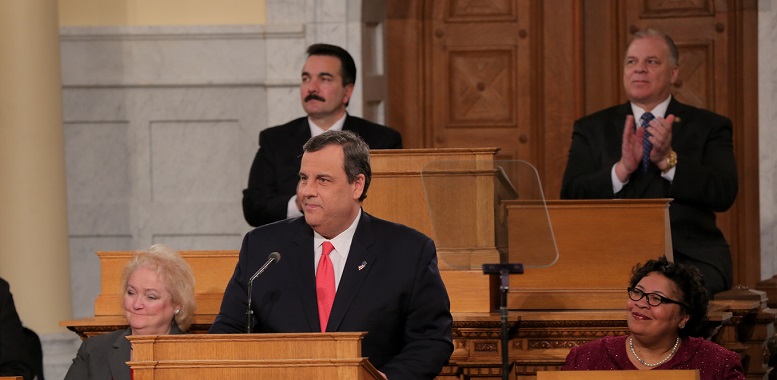A plan for replenishing New Jersey’s Transportation Trust Fund — which runs dry in less than three weeks — was unveiled today by Assembly Speaker Vincent Prieto and other leading Assembly Democrats. The proposal calls for $2 billion in annual spending for 10 years, and aims to double transportation aid to local governments. From the Assembly Democrats’ press release:
- $2 billion would be spent annually on roads, bridges and transit networks, up from $1.6 billion.
- Annual transportation aid for local governments would be doubled to $400 million per year, providing key aid and property tax relief;
- The program would be funded by revising the petroleum products gross receipts tax, which is imposed on all companies engaged in refining or distributing petroleum products for distribution in this state. It applies to the first sale, not for export, of petroleum products within New Jersey. Home heating oil and propane gas and kerosene used for residential heating are exempt from tax.
- It would also be funded by modernizing how New Jersey taxes jet fuel. New Jersey taxes jet fuel at a low rate of 4 cents per gallon, and a recent study found commercial airlines get $42 million a year in tax breaks from the state under a policy that only taxes jet fuel they consume while taxiing and during takeoff.
- All fuel tax revenue would be constitutionally dedicated to transportation needs. Prieto has already sponsored a ballot question that will ask voters this fall to approve this dedication;
Shortly after the Assembly’s announcement, the New Jersey Senate, led by Senators Paul Sarlo and Steve Oroho, announced bipartisan agreement on a $20 billion, 10-year plan with some more details.
The Sarlo-Oroho plan calls for a 7% Petroleum Products Gross Receipts Tax, a 10-cent-per-gallon PPGRT tax on motor fuel, and a 3-cent-per-gallon PPGRT diesel surcharge, all imposed at the wholesale level. If oil companies passed the full cost of the PPGRT tax on to motorists, the gas tax increase would be 23 cents a gallon. Added to New Jersey’s current 14.5-cent tax on motor fuels, New Jersey’s 37.5-cent per gallon would still be lower than both New York’s 42.4-cent motor fuel tax and Pennsylvania’s 50-cent tax.
The Senate proposal also includes a pilot vehicle miles traveled (VMT) tax, not unlike Oregon’s OReGO program, on electric, hydrogen-powered and “other non-gas powered vehicles,” which would go into effect one year after passage. Revenue from the VMT tax would be dedicated to emission-reducing projects included in the TTF, such as transit and other “congestion reduction initiatives” (here’s hoping highway widening projects aren’t included under that category).
So what about Governor Christie’s requirement that “tax fairness” be a part of the equation? The Senate’s plan includes phasing out the estate tax by the end of 2019, increasing exemptions for retirement income, and establishing an income tax deduction for drivers whose gas taxes paid exceeds 1 percent of their income.


[…] New Jersey. Thanks to inflation, drivers pay less and less for the roads, but transit riders are paying as much as they ever have following a fare hike last […]
[…] 23 – The Senate and Assembly TTF reauthorization bills are considered and passed out of […]
[…] 23 – The Senate and Assembly TTF reauthorization bills are considered and passed out of […]